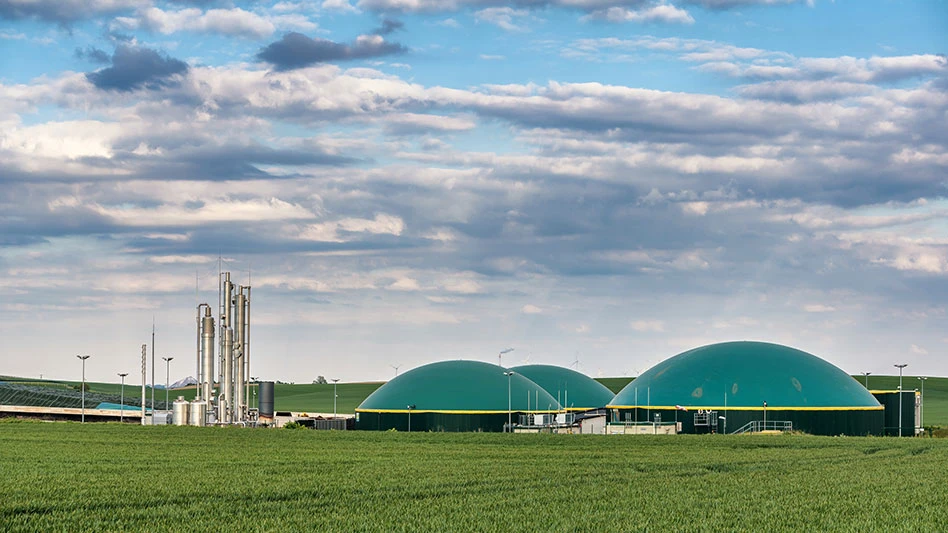
Quincy, Massachusetts-based grocery retailer Stop & Shop is celebrating the five-year anniversary of its Green Energy Facility, an anaerobic digestion (AD) unit it commissioned in April 2016.
The retailer says the Freetown, Massachusetts, AD facility has processed more than 130,000 tons of inedible food and generated 25,800 megawatt-hours (MWh) of electricity, which is enough to power more than 3,300 homes for one year. Another result has been “significant reductions in carbon dioxide (CO2) emissions,” says Stop & Shop.
The Green Energy Facility accepts the retailer’s inedible food items that cannot be sold or donated, converting them into energy that helps to power Stop & Shop’s Freetown distribution center. Stop & Shop says it is the only retailer operating and fueling its own AD facility on the East Coast.
The carbon in the scrap food material is converted into a biogas and is then used as a power source. To date, the digester has reduced CO2 emissions by 28,700 metric tons, says the retailer. Stop & Shop calls that “the equivalent of gas emissions from 6,200 passenger vehicles driven for one year.”
The energy created at the facility also generates up to 40 percent of the Stop & Shop distribution center’s energy needs –the equivalent of powering the 1 million square foot facility for four months out of the year.
“Stop & Shop has set robust sustainability goals to ensure we’re making a measurable impact in terms of reducing our environmental footprint,” says Gordon Reid, the firm’s president. “We’re committed to taking bold climate action and to eliminating waste, and the Green Energy Facility is a key part of those efforts. We’re proud to celebrate five years – and to be a leading the way among grocery retailers.”
The company, which has more than 400 stores in Massachusetts, Connecticut, Rhode Island, New York and New Jersey, says it also “recycles enough cardboard to save more than 1.8 million trees annually.” Through its recycling programs, Stop & Shop says it diverts approximately 75 percent of its discarded materials from going to landfills or incineration. The company says it recycles more than 175,000 tons of material per year including plastics, cardboard and food waste.
Latest from Waste Today
- ASAP Marketplace launches the Dumpster Debris Calculator
- Yanmar Compact Equipment North America appoints new president
- Plum Creek Environmental acquires Custom Installation LLC
- Avis introduces Harris American Co.
- Landfill Insights: The science of landfill compaction
- Project Canary, Sniffer Robotics partner to develop methane emissions monitoring tools
- Montauk Renewables breaks ground on Tulsa RNG project
- Meridian Waste donates $50K to community organizations







